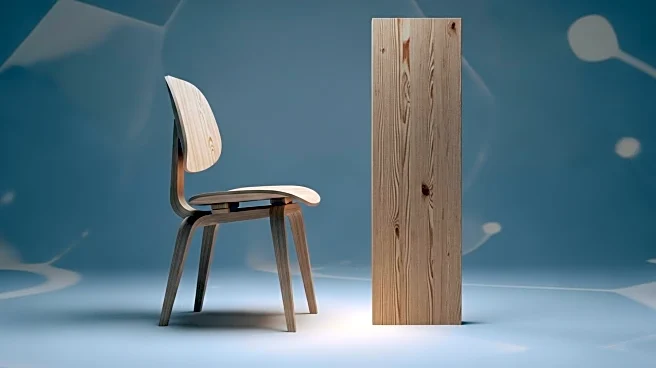What's Happening?
China has expressed disapproval of U.S. President Donald Trump's recent decision to impose new tariffs on imports of softwood lumber, upholstered furniture, and kitchen cabinets. The tariffs, which include a 10 percent global tariff on softwood lumber and a 25 percent tariff on certain upholstered furniture, are part of Trump's strategy to bolster American manufacturing by reducing foreign competition. The Chinese foreign ministry, through spokesperson Guo Jiakun, stated that trade wars have no winners and that protectionism is not a viable solution. These tariffs are seen as a continuation of Trump's economic policy aimed at reshaping trade arrangements perceived as unfair to the U.S.
Why It's Important?
The imposition of these tariffs could have significant implications for both the U.S. and global economies. While they may benefit some domestic industries by reducing foreign competition, they also risk increasing costs for consumers and contributing to inflation. The Federal Reserve has expressed concerns that these tariffs could exacerbate inflationary pressures, which are already elevated in the U.S. This move could also strain U.S.-China relations further and impact global trade dynamics. The tariffs are part of a broader strategy by President Trump to revitalize American manufacturing, but they could also lead to political challenges if they result in higher consumer prices and do not improve the job market.
What's Next?
The tariffs are set to increase further on January 1, 2026, with the tariff on certain upholstered furniture rising to 30 percent and on kitchen cabinets to 50 percent. The U.K., EU, and Japan, which have trade agreements with the U.S., will receive preferential rates. The ongoing trade tensions and their impact on inflation and consumer prices will likely be a significant issue in the upcoming 2026 midterm elections, potentially affecting President Trump's political standing.










